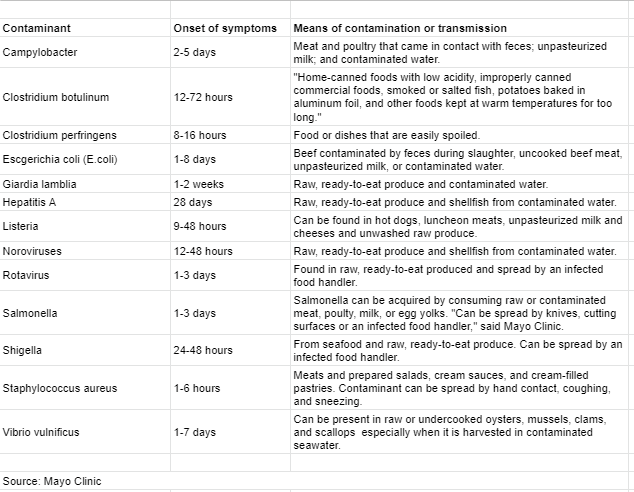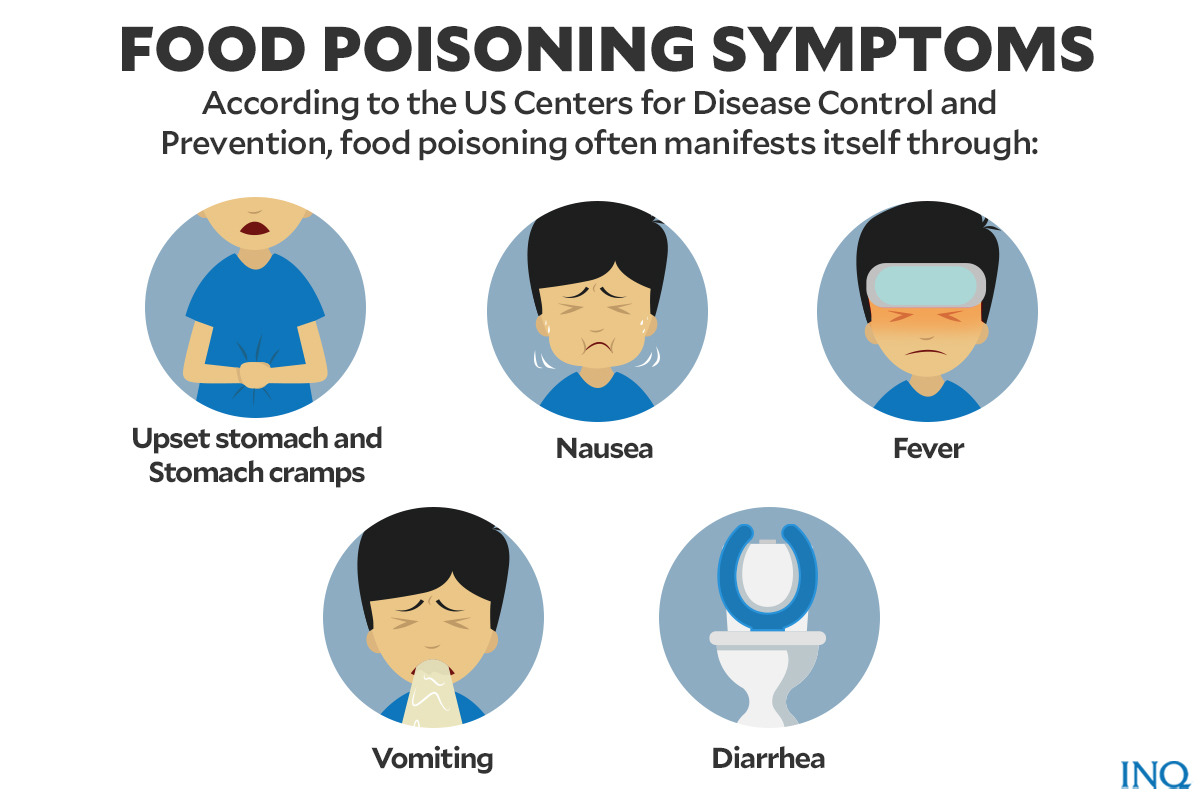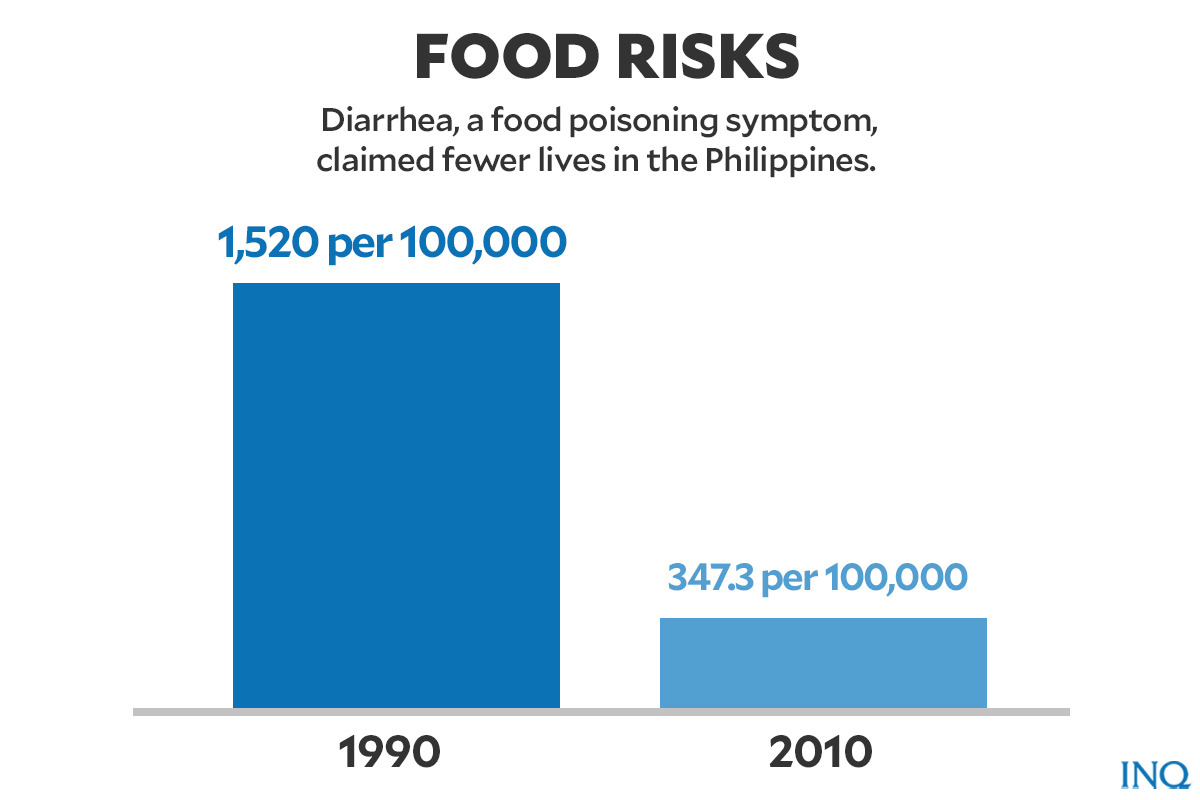Food safety: How not to die or get sick while eating
MANILA, Philippines—The recent viral case of a customer finding a towel inside a fried piece of chicken he ordered for delivery illustrates the importance of safe food handling and draws the spotlight on World Food Safety Day on June 7.
While the case came a few days before the celebration of World Food Safety Day, it provided a picture of the risks that people sometimes face with unsafe food.
READ: Jollibee temporarily shuts down branch in ‘fried towel’ mess
When it comes to ordering and consuming food from delivery outlets, the common assumption is if the brands are trusted, then there’s nothing to worry about.
But consumers are not in on the processes that go with the preparation of the food they order.
The Department of Health has discussed food safety lengthily and has a list of things to know about food and water-borne diseases and food poisoning and how to prevent getting sick from unsafe food. The DOH instructions might be useful for consumers.
Article continues after this advertisementUnsafe food and health risks
According to the DOH, food poisoning and diseases from water are often caused by:
Article continues after this advertisement- Unsafe sources of drinking water
- Improper disposal of human waste
- Unhygienic practices, like spitting anywhere, blowing or picking the nose
- Unsafe food handling and preparation practices
Food poisoning, the DOH said, could also occur if a person consumes food contaminated with bacteria, like salmonella and E. coli, or viruses, like norovirus.
Data from US-based nonprofit organization Mayo Clinic showed how quickly a person can experience symptoms of food poisoning, depending on the type of contaminant or how the culprit bacteria or viral agent spread.
Here’s a table from Mayo Clinic:
In the Philippines, cases of food poisoning have found themselves in the news.
Last February, two children from Santa Ana town, Cagayan province died after eating “kuret,” a type of coral reef crab.
READ: 2 kids die, father in critical condition after eating ‘kuret’ crab in Cagayan
Last May, at least 37 individuals were hospitalized at the same time for suspected food poisoning after eating ‘humba,’ a Visayan dish, at an event held in Cebu City.
READ: 37 performers heal from ‘food poisoning’ in Cebu City
Cross-contamination occurs when the food is improperly prepared or stored. Other factors that can increase the risk of food contamination included:
- Not cooking food thoroughly.
- Not following the appropriate storing temperature for food products.
- Leaving cooked food for too long in warm temperatures.
- Not sufficiently reheating cooked food.
- Eating expired food or food products that have passed its “use by” date.
What to do in case of food poisoning?
According to the US Centers for Disease Control and Prevention (CDC), some of the tell-tale symptoms of possible food poisoning are:
- Upset stomach
- Stomach cramps
- Nausea
- Vomiting
- Diarrhea
- Fever
The Philippines’ DOH said individuals should seek immediate medical help if they experience these food poisoning symptoms:
- Bloody diarrhea or blood in stool
- High fever
- Frequent vomiting
- Alarming signs of dehydration, like little to no urination, dry mouth and throat, dizziness
- Diarrhea lasts for more than three days
The DOH also recommended preserving the evidence, like samples from contaminated food.
On its website, the DOH said samples from possibly contaminated food should be wrapped securely, marked with the word “danger,” and frozen for tests.
Severe results of food poisoning
While it is uncommon, the CDC said food poisoning may lead to serious health problems and long-term effects, like chronic arthritis, brain and nerve damage, and kidney failure.
“Most people have only mild illnesses, lasting a few hours to several days. However, some people need to be hospitalized, and some illnesses cause long-term health problems or even death,” the CDC said.
Globally, at least 600 million, or one in ten people, become sick due to contaminated food, according to the World Health Organization.
WHO added that at least 420,000 people die every year due to food poisoning.
“Diarrhoeal diseases are the most common illnesses resulting from the consumption of contaminated food, causing 550 million people to fall ill and 230,000 deaths every year,” it said.
In the Philippines, the DOH noted that the morbidity rate due to diarrhea has decreased from 1,520 or 100,000 population in 1990 to 347.3 or 100,000 population in 2010.
However, during the past years, the health department saw notable outbreaks and attributed the occurrence of food and water-borne diseases to socio-cultural factors.
Prevention
The DOH has previously issued guidelines for proper food handling to prevent cases of food poisoning or water diseases:
- Kitchen areas should be protected from insects, pests and other animals.
- Avoid placing pesticides around the kitchen to kill indoor insects and rodent pests
- Cleaning chemicals must be kept away from food and must be placed in proper containers with labels
- Utensils must be washed and sanitized before use
Food handlers should also always wash their hands before preparing and serving food to their customers, the agency said.
“They are also reminded to stay home when sick so they will not contaminate the food being served. Hairnets and masks are also required during food preparation,” DOH said.
Citing WHO, the health department also reminded the public to always heed these tips to ensure the safety of the food they consume:
- Keep everything clean—from preparing to storing food
- Separate raw and cooked food
- Cook foods thoroughly
- Keep food at safe temperatures
- Use safe water and raw materials
TSB
For more news about the novel coronavirus click here.
What you need to know about Coronavirus.
For more information on COVID-19, call the DOH Hotline: (02) 86517800 local 1149/1150.
The Inquirer Foundation supports our healthcare frontliners and is still accepting cash donations to be deposited at Banco de Oro (BDO) current account #007960018860 or donate through PayMaya using this link.



